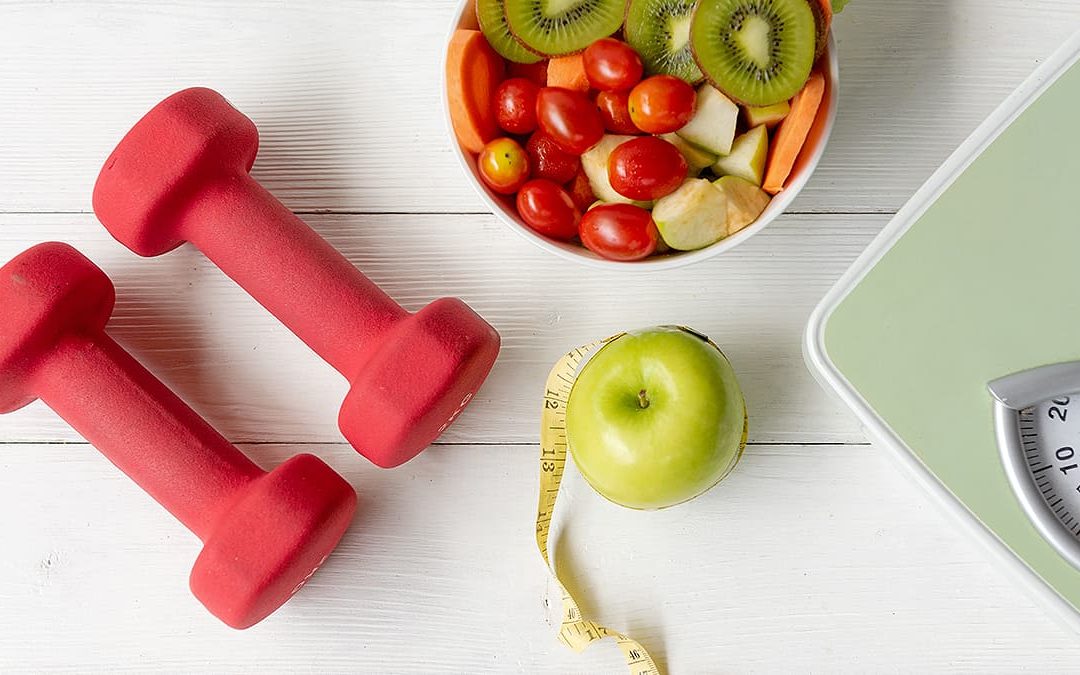
Will a “Hormone Diet” Help You Lose Weight?
One diet that has been popular in recent years is the hormone diet. There are a few different versions of this eating plan floating around, although they all promise to help you rebalance hormones in order to lose weight and achieve better health. The people who sell these diets claim they work. But what does science say?
What Are Hormones?
Hormones are chemicals that are made by organs called glands. Their job is to act as a messenger between different organs or different body parts. For example, the gland in one part of the body may send out signals that affect how cells in a different area behave. Hormones affect many processes, such as metabolism, mood, and reproduction.
Some examples of hormones are:
Growth hormone: This hormone is made by the pituitary gland, found in the brain. Growth hormone helps children grow and develop. It also necessary in people of all ages for functions like breaking down and storing fats, making proteins, and keeping brains and bones working properly.
Cortisol: The adrenal glands make cortisol when you’re feeling stressed out. It helps control inflammation, blood pressure, sleep, mood, and metabolism.
Insulin: Insulin, made by the pancreas, is also linked to metabolism. It helps cells absorb sugar from the blood to use for energy.
Thyroid hormones: The thyroid, located in the front of the neck, makes hormones called T3 and T4. These control metabolism and help the bones and heart work properly.
Reproductive hormones: Estrogen, progesterone, and testosterone help the reproductive system develop and work properly and are important for healthy sexual function.
These and many other hormones affect the way the body breaks down food, stores it, and uses it as fuel. When hormone levels are too high or too low, they can cause someone to lose or gain pounds. This has led many people to study the connection between hormones and weight loss.
What is the Hormone Diet?

What Do You Do on the Hormone Diet?
The original hormone diet lists three separate phases: Phase 1: The first part of the diet is detox. People avoid certain foods for two weeks, including gluten (found in certain grains and bread products), cow’s milk and dairy products, peanuts, alcohol, caffeine, corn, sugar, and certain citrus fruits such as grapefruit. Additionally, processed, man-made foods are off-limits. According to the diet, these foods can cause inflammation and make it hard for your digestive system to absorb the nutrients it needs. Instead, people are told to eat foods such as rice, vegetables, fruits, beans, nuts, seeds, poultry, fish, and eggs. Dieters are also instructed to take supplements such as probiotics and fish oil. The hormone diet is supposed to help people lose 12 pounds during this first phase, in addition to lowering levels of hormones like estrogen and cortisol. Phase 2: After two weeks of detox, a person starts slowly adding some foods back into the diet. However, they are told to pay attention to how their bodies respond to these foods. For example, a person may notice that eating dairy products tends to give them a stomachache. People following the hormone diet are still told to stay away from processed foods and foods with preservatives during this time. Phase 3: At this point in the hormone diet, people continue the same eating plan but begin to exercise. They also add other healthy habits into their routines, such as getting good sleep and reducing stress, as these habits play a role in the levels of certain hormones.
Does the Hormone Diet Work?

-
- Multiple studies have found that when people lose weight through different methods, including eating fewer calories or getting weight loss surgery, they can normalize their levels of thyroid hormones.
- When people lose weight, their insulin levels decrease and their bodies can use insulin more efficiently.
- In one clinical trial, overweight women who had gone through menopause used diet, exercise, or both to lose weight. All of the women who lost weight, but especially those in the diet plus exercise group, also had a decrease in levels of estrogen and testosterone. However, it is imperative to note that the study participants had elevated hormone levels at the beginning of the study.
The bottom line: for the most part, we don’t yet know enough to be able to say which specific foods can raise or lower the levels of specific hormones. However, we do know that losing weight using a variety of strategies can help keep hormones at normal levels.
What’s Good About the Hormone Diet
-
- Some parts of the hormone diet encourage habits that science has shown to be helpful for losing weight and gaining health. Some of these include:
-
- Natural, whole foods: The hormone diet tells people to avoid processed, man-made products. These foods tend to have extra calories without providing much nutrition, so cutting them out of your diet is a good thing. Processed foods can make you overeat and gain weight and increase your risk of heart disease.
- Good nutrition: The foods that people eat on the hormone diet are fairly similar to those eaten on the Mediterranean diet, which has been extensively studied. The Mediterranean diet has many health benefits, such as healthy aging, weight loss, and a lower risk of heart disease, brain disease, and some types of cancer.
- Paying closer attention to what you eat: The diet encourages people to find out whether they are intolerant to certain foods by avoiding those products for a couple of weeks, and then trying them again. It’s possible that some people are intolerant to foods such as gluten and that avoiding these foods will help make people feel healthier.
- Exercise: The hormone diet encourages people to get cardiovascular or aerobic exercise as well as strength training or weight lifting. Physical activity is essential for many aspects of health, including weight loss.
- Stress management: Feeling stressed on a regular basis can lead people to gain weight, but learning how to better deal with stress through relaxation techniques and breathing exercises can help people lose pounds.
- Getting enough sleep: Quality sleep helps people burn more fat and stay at a healthy weight, making it an important weight loss tool.
These tools may or may not change your hormone levels in a predictable way, but they can help you lose weight. Following these parts of the hormone diet can help you lose pounds and reduce your risk of disease, even if you don’t follow the exact plan that the book recommends.
-
What’s Bad About the Hormone Diet
-
- Unfortunately, there are some parts of the hormone diet that probably don’t work or could even be harmful. These include:
-
- Fast weight loss: Sure, dropping pounds quickly sounds great, but it’s not very realistic. Often, it takes a while for the weight to come off. Additionally, losing weight quickly is not very healthy. While the hormone diet expects people to lose 12 pounds in the first two weeks, the CDC says that people who lose 1-2 pounds per week are more likely to keep the weight off in the long term.
- Changing your hormone levels may be risky: Hormones are involved in nearly every process in the body. Your body normally tightly controls levels of these molecules in order to keep everything working correctly. If you do end up drastically altering your hormones, you may end up with negative effects in other parts of the body. Please talk with your physician about this as hormone balancing is a very comprehensive undertaking and must be done with the help of a board-certified physician.
- It’s hard to know if your hormone levels are actually changing: Even if you follow the hormone diet exactly as written, you won’t necessarily be sure which hormones are increasing or decreasing, or how much they’re changing.
Overall, trying to control the levels of your many hormones through food might not be realistic, and could lead to further problems. If your body is healthy overall, then your hormone levels will be where they need to be. Abnormal hormone levels are often a sign of other health concerns.
-
Do You Need to Worry About Hormone Levels?

The body tightly controls how much of each hormone is made. Sometimes, health problems cause certain glands to make too much or too little of a hormone. This can lead to a hormone disorder, which may also be called an endocrine disorder. The most common disease in this category is diabetes, which occurs when the body doesn’t make enough insulin, causing blood sugar levels to get too high. Another example is hypothyroidism. In this disorder, the thyroid doesn’t make enough T3 and T4 hormones, leading different body processes to slow down.
Finding Out Your Hormone Levels
If you think that you may actually have a problem with certain hormones, the first step is talking to your doctor. Your primary care provider can help you test your hormone levels by drawing your blood. If you are female, you may also be able to have your gynecologist measure levels of your reproductive hormones. Your doctor can then help you understand whether there are any problems and what steps you can take.
Some companies also sell kits that allow you to test your hormone levels at home. This often involves collecting a sample of saliva, blood, or urine and mailing it in to a company. The company will then send you results that say what your levels of different hormones are and whether they are in a normal range. Again, it is important to take this information to your physician to review with you.
Treatment
If you are diagnosed with a hormone imbalance, there may be several different treatment options depending on what exactly the problem is. For example, if your thyroid produces too many hormones, you may be able to fix this through medication, radioactive treatment, or surgery to remove all or part of the thyroid.
Low hormone levels may be able to be fixed by taking man-made hormones in order to replace the ones that your body isn’t making. One example of this is someone with diabetes taking insulin in order to help control blood sugar levels. Another example is a woman taking hormone replacement therapy while going through menopause. True hormone imbalances can usually be solved through medical means, rather than by going on a diet.
Conclusion
Overall, there is much we have yet to learn about hormones and the link with our food to our hormones and weight loss. Following the hormone diet could help you shed pounds, but any weight loss you see may be simply due to the fact that you’re eating healthier foods and exercising more. Regardless of whether or not you’re resetting your hormones, the hormone diet does contain many great ideas that can help people become healthier and weigh less.
For more information on what type of diet would benefit your body, please schedule an appointment with Dr. Connor.

